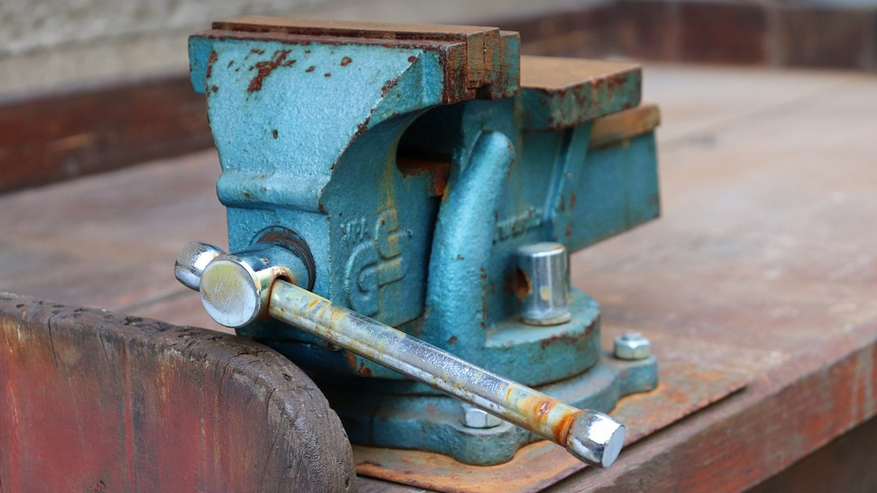
Can A Bolt Cutter Cut A Master Lock?
The Ultimate Test of Strength: Bolt Cutters vs. Master Locks
You’ve probably heard the saying, “There’s no such thing as a free lunch,” and that often applies to security. If you’re ever faced with a situation where someone needs access to something they shouldn’t have, or if you find yourself needing to break into a locker or car, then bolt cutters are your go-to tool. But what about the legendary Master Lock? Can these brute force tools actually cut through the tough steel of these locks? Let’s dive deep into this age-old question and explore how different materials interact with each other in the context of bolt cutters. We’ll cover everything from the science behind lock security to the physical characteristics of bolt cutters and lock mechanisms, to give you a comprehensive understanding of this intriguing clash of titans!
The History of Master Locks: From Humble Beginnings to Modern-Day Security
Master Lock has been synonymous with security since its inception in the late 19th century. The company’s commitment to innovation and quality led to the development of incredibly robust and secure locks, specifically designed to withstand any challenge. Their reputation for unwavering protection is a testament to their ingenious design that has stood the test of time. These locks are known for their sturdiness, particularly their high-grade steel construction, making them resistant to break-ins.
The Science Behind Security: The Keys to Master Lock’s Durability
Master Locks rely on a combination of intricate mechanisms and materials to create an impenetrable barrier to unauthorized access. Their core secret lies in the complex design of their locking system. First, they utilize hardened steel pins that are strategically shaped and precisely aligned within the lock cylinder. This precise placement ensures each pin rotates as you turn the key, creating a strong resistance against any external pressure or brute force attempts.
Bolt Cutter’s Strengths: Cutting Through Barriers
Bolt cutters have been used for decades to break through doors, gates, chains, and even metal bars. They are powered by their leverage system which utilizes a thick, sharp blade that can cut through nearly any material, including steel, copper, and aluminum. The cutting action involves forcing the blade through the lock’s material at an angle, leveraging the blade’s force to create a clean break in the metal structure.
Materials: The Battleground for Durability
When it comes to locks and bolt cutters, there is a fascinating connection between materials and their ability to endure physical stress. A lock’s durability depends on its ability to withstand force without deformation. The lock mechanism relies upon the strength of the steel used in the locking system, which acts as a shield against external pressure.
The Science Behind Bolt Cutters
Bolt cutters utilize several key components that contribute to their effectiveness. Their unique design features include: * **Leverage System:** A critical factor in bolt cutter’s ability to cut through material is its leverage system. This allows for a much higher force per unit of area, allowing the blade to exert a significant amount of pressure on the lock’s structure. * **Blade Design:** The cutting teeth of a bolt cutter are sharpened at a specific angle and shape, making them ideal for shearing through materials like metal. * **Sturdy Materials:** Bolt cutters are typically made from high-carbon steel or alloy steel, which offers exceptional strength and durability against wear and tear.
The Art of the Cut: How to Properly Utilize Bolt Cutters
To maximize your success when using bolt cutters, it’s crucial to understand the proper technique for cutting through various materials. * **Material Considerations:** Different materials require specific approaches. For instance, metals have varying levels of thickness and hardness, impacting how a bolt cutter interacts with them. * **Cutting Angle:** There’s an art to choosing the right angle. It is essential to strike the lock at an appropriate angle, allowing the blade to reach the lock mechanism without excessive force from your body.
The Verdict: Can Bolt Cutters Really Cut a Master Lock?
While bolt cutters are incredibly effective tools for breaking through various barriers, there’s a crucial factor in their ability to cut through a Master Lock. It boils down to the lock’s design and the level of force needed to achieve a clean break. * **Lock Security:** The strength and resilience of the lock mechanism itself play a major role in determining its resistance to brute-force techniques. * **Bolt Cutter Technique:** Using accurate cutting techniques with proper leverage, angle, and pressure is essential for maximizing the effectiveness of your bolt cutters.
Conclusion: When it comes to security
When you consider the complexities involved in both materials science and engineering, the idea of a bolt cutter defeating a Master Lock can appear impossible. However, a closer look reveals the fascinating interplay of these factors and how they influence the outcome of such a clash. * **Alternative Solutions**: There are more effective and secure alternative methods for accessing items that require higher levels of security than simply using bolt cutters. This is where a professional locksmith or other alternative solutions come in to play. It’s important to remember that while the idea of a bolt cutter cutting through a Master Lock might be appealing, it’s often not as straightforward as one would imagine. The complexities inherent in both materials science and mechanical engineering make it clear that there are limits to what a bolt cutter can do when facing a Master Lock..
Further investigation